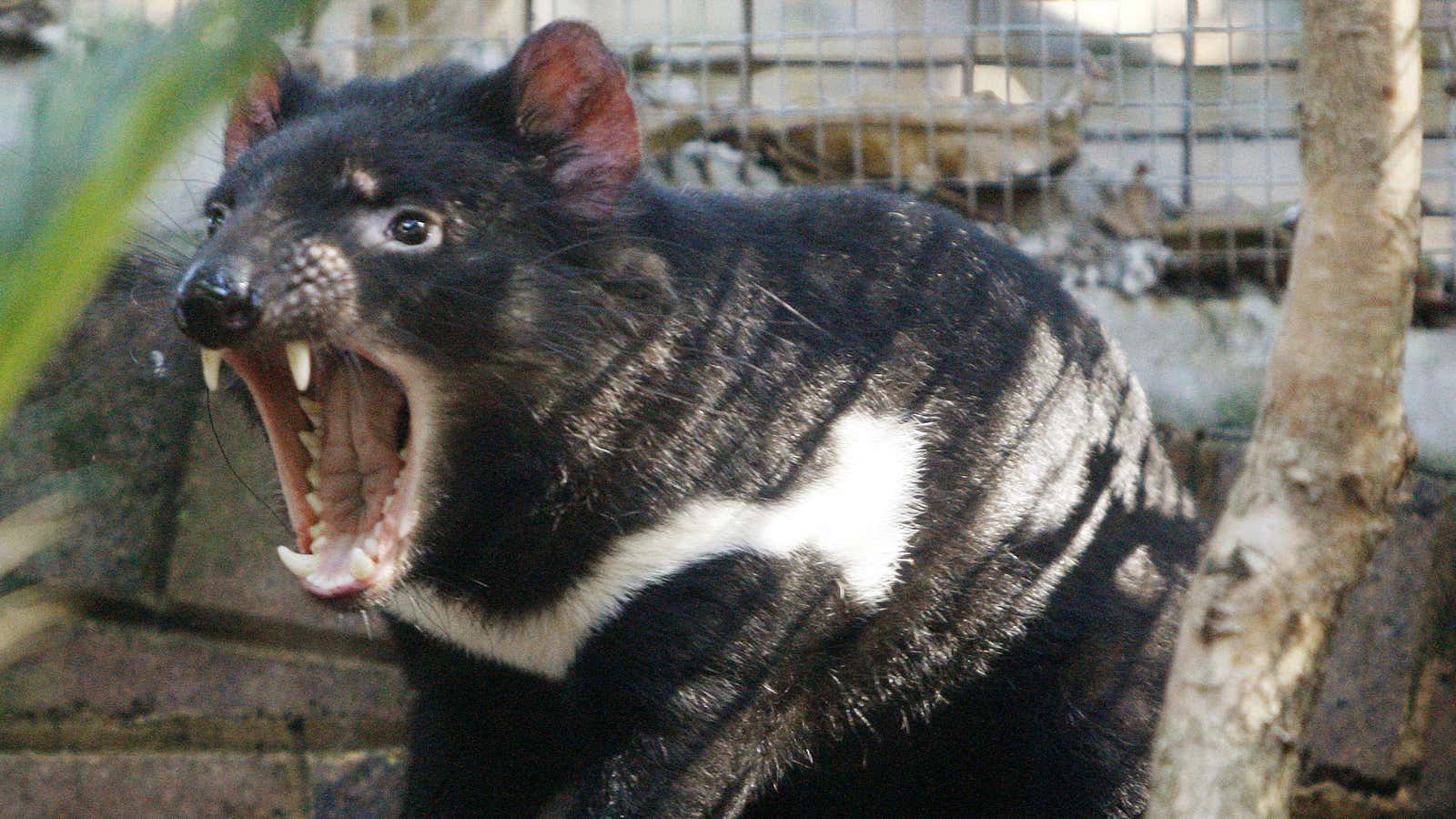Three species on the planet are at risk for cancers that can spread from one animal to the next, but only Tasmanian devils are at risk for two different kinds.
Scientists at the University of Tasmania and the University of Cambridge recently identified a new strain of transmissible cancer in the small marsupials, which could threaten the already endangered population. It is the second transmissible cancer to be found passing through the species.
Tasmanian devils live exclusively on Tasmania, a small island state located south of Australia. Unlike the “Loony Tunes” cartoon character, they’re black with white stripes, like a skunk. But they share a similar disposition: They’re aggressive animals with a characteristic satanic growl. They have the strongest bites (paywall) for their size of any animal on the planet, and frequently chomp at each other as they fight over food or mates.
In 1996, scientists discovered a facial tumor on Tasmanian devils, which ultimately killed the animals after six months. These tumors—called Devil Facial Tumor Disease—are cancerous. Further research showed that as devils bit (paywall) each another, cancer cells from the tumors migrated from one animal to another. The cancer cells bypassed each new devil’s immune system, creating cancer clones. So far, DFTD has killed about 60% of the devil population.
Now scientists have found (paywall) a second strain of contagious cancer, according to a Dec. 2015 study published in the Proceedings of the National Academy of Sciences. Though it appears the same way as the first—a swollen, red mass on the animals’ face or mouth—it is genetically distinct from the first-discovered strain.
Transmissible cancer is not known to exist among humans. It’s also exceedingly rare among animals: Before this paper was published, there were only three known strains of cancer that could jump from host to host; these affect devils, dogs, and soft-shell clams.
“It makes us wonder whether transmissible cancers may not be as rare in nature as we previously thought,” Elizabeth Murchison, a veterinary oncologist at the University of Cambridge and co-author of the paper, said in a press release. “Alternatively, perhaps Tasmanian devils are particularly vulnerable to the emergence of transmissible cancers.”
The study authors speculate that low genetic diversity among devils has made them more likely to succumb to DFTD. In other words, because there are so few devils in the world, they have similar DNA, which could allow tumors to move from one animal to another without much need for adaptation.
Researchers have been working on a vaccine (paywall) for DFTD; fortunately, some believe that this second strain of transmissible cancer can be incorporated into the existing work.




